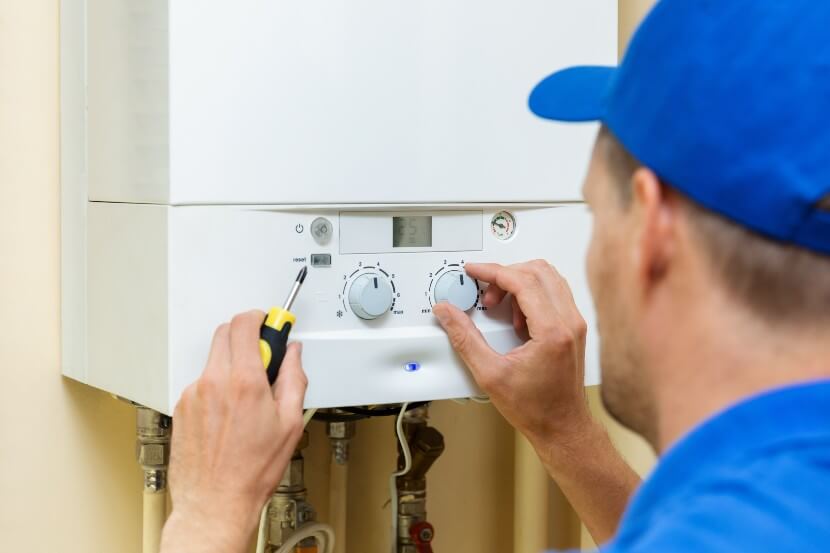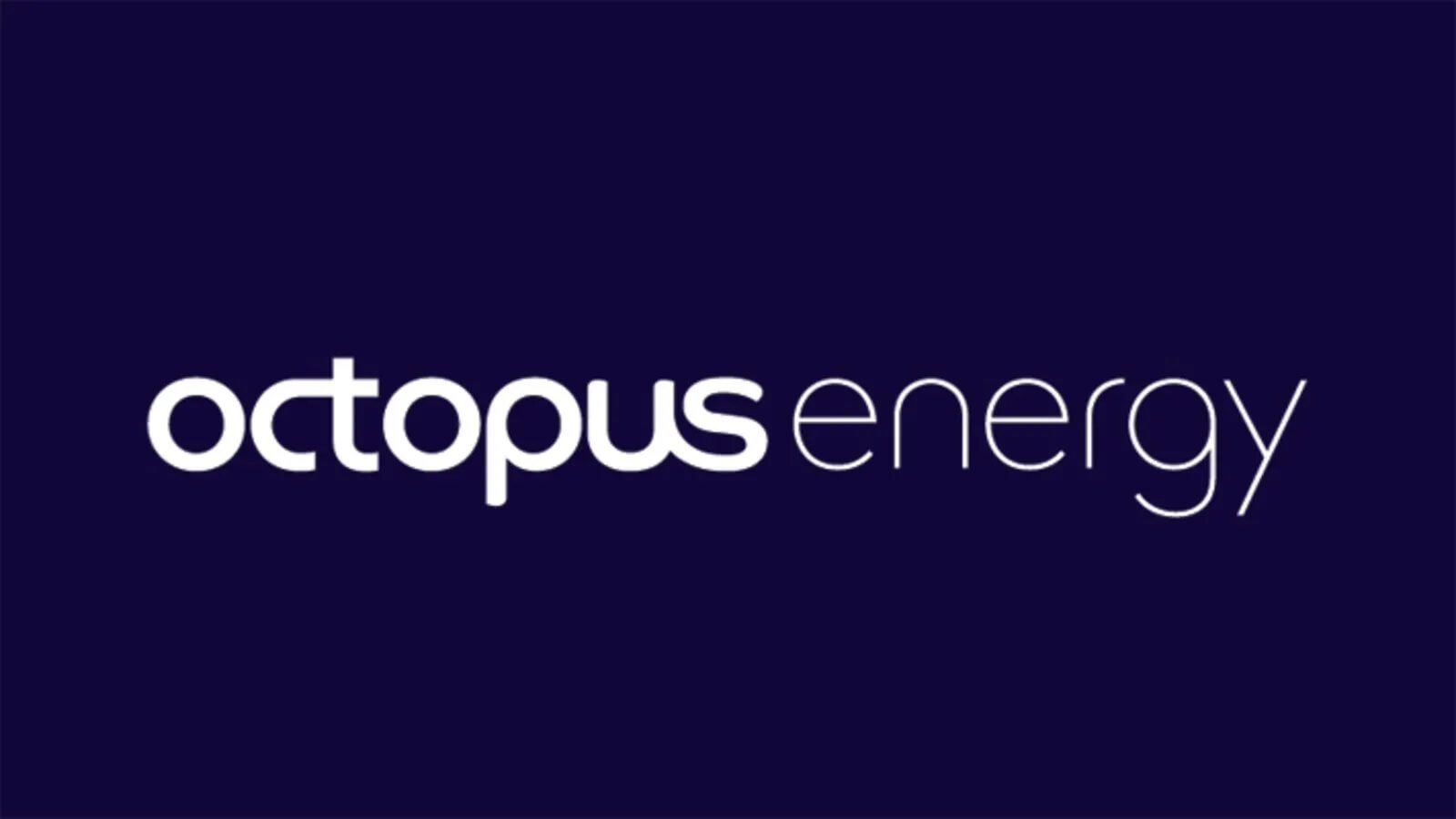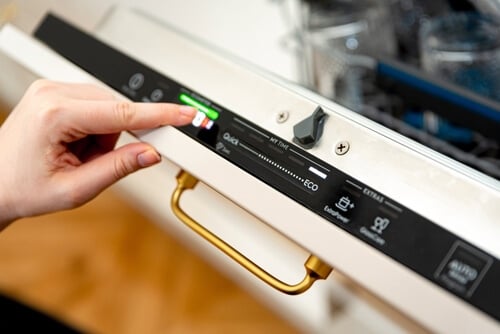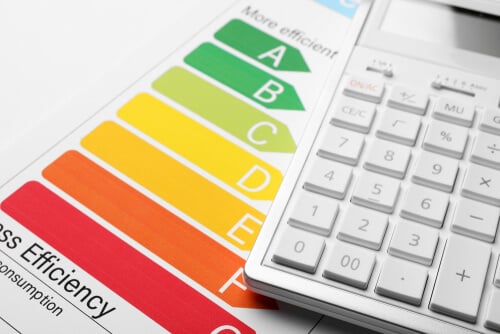An inefficient boiler can mean you end up spending more money than you need keeping your home warm and your water hot. Older boilers are also at a higher risk of breaking down, and if out of warranty could be costly to replace parts or repair.
This means if you're looking to upgrade your heating system, it's a good idea to find the best type of boiler for you.
Here’s a rundown of the different types of boiler available.

Switching energy providers
If you're looking for certainty on your energy bills, compare energy deals to see fixed deals that are currently available.
What are the different types of boiler?
There are 3 main kinds of condensing boiler. These are:
- Combination (combi) boilers
- Conventional heat-only boilers
- Sealed system boilers
What is a condensing boiler?
A condensing boiler is an energy-efficient boiler that recovers heat energy from waste gases.
By law, all new and replacement boilers must be condensing boilers. An A-rated condensing boiler runs at 92-94% efficiency, whereas an old, non-condensing boiler runs at about 70% efficiency.
You can tell whether you have a condensing boiler by looking at the flue. The flue is pipe that carries the boiler’s exhaust outside the house.
If the flue is metal and you can’t see any steam coming from it when the boiler’s on, you’ve likely got a non-condensing boiler.
Replacing your gas boiler with a condensing boiler could make your central heating run better. This should not only cut the cost of your energy bills but also be more energy efficient and reduce your emissions.
What are combi boilers?
Combi boilers provide heat and hot water direct from the boiler itself. There's no need for an external water tank.
If you live in a small place, a combi boiler could be a good bet for you.
Since you get your heat and hot water on demand, there’s less wasted energy. This makes it the boiler of choice for eco-conscious folks.
Combi boilers also tend to be less of a hassle to install. So, getting it fitted shouldn’t be as expensive other types of boiler.
Combi boilers are less effective for larger homes, as well as areas with lower water pressure.
What are conventional boilers?
Heat-only gas boilers take up a bit more space than a combi boiler, which means they might not be an option in smaller homes.
These boilers have 2 tanks:
- A hot water tank (usually stored in an airing cupboard)
- A cold water tank (usually in the attic)
A conventional boiler might suit you if:
- You’ve got multiple bathrooms
- You need hot water from more than 1 tap at a time
The downside is that it could be a bit more expensive to install as there’s more equipment involved. And if you want to jump in a hot bath right this instant, tough luck. You may need to wait for the water tank to heat up first.
These drawbacks have led to a fall in popularity for conventional boilers in favour of the combi. According to The Eco Experts, a conventional boiler could cost in the region of £1,500 - £2,500.
What is a system boiler?
Sealed system boilers are like heat-only boilers – the main difference is that they don’t have a cold water tank.
This could be a useful feature if you have a loft conversion and space is an issue. Also, these boilers are pressurised, so could come in handy if you live in an area with low water pressure.
System boilers are normally considered a good option for larger households as they let you run hot water from multiple taps at the same time.
The trade-off with these boilers is that they can be expensive. And, as with conventional boilers, you need space to fit the hot water tank.
According to Heatable, a sealed system boiler is likely to set you back between £1,895 and £2,345.
What boiler do I have?
You should be able to work out what type of boiler you have by looking at it.
Combi boilers - look at the copper pipes coming out of the bottom of it. If there are 5 copper wires coming out and you don't have a hot or cold water tank, it's a combi boiler.
Conventional boilers - if you've got a hot water cylinder, a cold water storage tank and an external pump, you've got a conventional (or regular) boiler.
System boiler - if you have a larger house with more than 1 bathroom, chances are you have a system boiler. You can double check by counting the copper pipes coming out of your boiler - there should be 3 with a sealed system boiler. There are no external pumps or cold water tanks either.
What boiler do I need?
Your choice of boiler comes down to several factors including:
- The size of your home and number of bathrooms
- The amount of hot water you use
- The number of people in your house
- The fuel sources available to you (if you don't have access to gas, for example)
- Your budget
Before making any decision about what type of boiler you should install, it's worth talking to a good plumber.
What size boiler do I need?
When we're talking about boiler size, we're not talking about their literal dimensions. We're actually talking about their power, which is measured in kilowatts (kW).
It's important to have the right size boiler. If it's not powerful enough you might struggle to get the heat you need in your home and hot water in the taps. If it's more powerful than you need, you risk burning more gas than necessary and face bigger bills.
As a rough guide, the larger your house (with more radiators and bathrooms) the more powerful your boiler needs to be.
According to PlumbNation, the smallest sized boilers (24-27kW) should be powerful enough if you live in a flat or small house.
For the typical 3-4 bedroom house (with 10 or more radiators) you need an output of 24-30 kW. But if you have extra bathrooms or more bedrooms you might need to go for a 30-35 kW boiler.
For a house with 20 plus radiators look to a 35-42 kW boiler.
It's worth discussing your boiler's output with your plumber. In some cases it may be worth buying a boiler that's more powerful than you initially need, for example if you're planning an extension.
Can I get a grant to help pay for a new boiler?
There are some schemes available that could help you reduce the cost of a replacement boiler.
The Energy Company Obligation (ECO) is a government-backed energy scheme that works with energy suppliers to reduce energy costs.
Whether you’re eligible depends on:
- Where you live
- Your supplier
- Your personal circumstances
Ask your energy supplier about the ECO scheme, or check out this advice from Ofgem.
Can I get a heat pump instead of a boiler?
The government is working toward becoming a zero-emissions country by 2050. Part of this involves looking at how we heat our homes.
Nothing has been written into law, but it’s thought that a ban on gas boilers in new homes may come in the next few years. An alternative to using a boiler is a heat pump.
Heat pumps come in 2 types:
- Air source heat pumps (ASHP). These extract heat from the air outside and use pumps to heat it before going into your central heating.
- Ground source heat pumps (GSHP). These extract heat from water in pipes underground.
These systems run on a small amount of electricity instead of using mains gas. You can even run them using solar energy, so you could have truly renewable heating.
The initial cost of installing a heat pump can be quite large. The Energy Saving Trust estimates it costs £7,000 and £13,000 to put in an ASHP.
Thinking about going for a heat pump? You need to balance out the initial cost with any potential savings you’d get in future.
Is your gas boiler already efficient, with an A rating or above? The Energy Saving Trust says it could work out to be more expensive to install a heat pump.
Can I use solar power to heat my boiler?
Yes, you can!
Solar panels attached to your roof connect straight to the boiler to heat the water.
If you’re eco-conscious, this is a way to help lower your carbon footprint. If you’re budget conscious, it’s a way of reducing your energy bills.
There are a few things to consider, though:
- Do you have roof space that gets enough sunlight?
- Do you have space for a separate hot water storage tank?
- Is your boiler compatible with solar heating?
A solar heating system costs between £3,000 and £5,000. It’s a big expense with long-term investment benefits.
What are my options if I don't have access to gas?
If you live in a rural area, you may not have access to the gas grid to get these boilers. It’s estimated that over 4 million properties don’t have access to gas.
An option for you could be an oil-fired boiler.
The main difference between oil-fired and gas boilers is that you need a separate storage tank for the oil. You also need to arrange for oil to be delivered to your home.
There are oil-fired boilers available that are as efficient as their gas counterparts. The downside is that it might cost a bit more to install the storage tank.
Also, it’s generally thought that oil isn’t as environmentally friendly as gas.
Smart technology and heating
Some boilers may come with some kind of smart technology to help you manage your energy usage and make your home more energy efficient.
An example is a digital thermostat. These let you micromanage the temperature of your central heating.
This can act as a great incentive. Turning your thermostat down by 1 degree could shave £60 off your heating costs.
You can also get smart radiator valves that let you control the heating in each room via your phone.
This degree of control over how and when you heat your home could save you a pretty penny on your energy bills.
These smart devices sometimes come with real-time diagnostic information. This lets you troubleshoot problems with ease.
If you’re replacing your boiler anyway, you might be able to get a deal on some smart tech while you’re there.
You can pick up a Google Nest from around £200 and the Hive Smart Thermostat from £130. These smart thermostats also connect to Amazon Alexa, Siri and Google Home, allowing you even greater control over your home's temperature.







